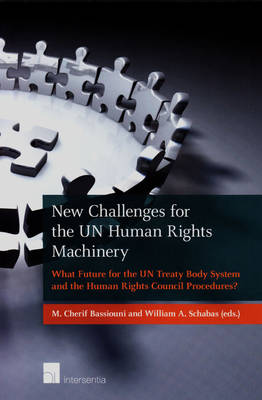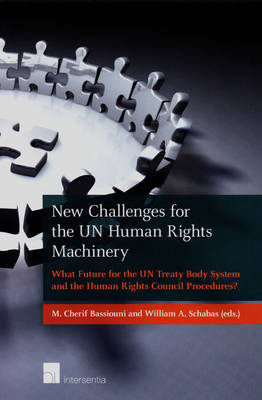
Bedankt voor het vertrouwen het afgelopen jaar! Om jou te bedanken bieden we GRATIS verzending (in België) aan op alles gedurende de hele maand januari.
- Afhalen na 1 uur in een winkel met voorraad
- In januari gratis thuislevering in België
- Ruim aanbod met 7 miljoen producten
Bedankt voor het vertrouwen het afgelopen jaar! Om jou te bedanken bieden we GRATIS verzending (in België) aan op alles gedurende de hele maand januari.
- Afhalen na 1 uur in een winkel met voorraad
- In januari gratis thuislevering in België
- Ruim aanbod met 7 miljoen producten
Zoeken
New Challenges for the UN Human Rights Machinery
What Future for the UN Treaty Body System and the Human Rights Council Procedures?
William A. Schabas
Paperback | Engels
€ 125,95
+ 251 punten
Omschrijving
In 2009, the UN High Commissioner for Human Rights gave a new impetus to the ongoing discussions on the reform of the UN treaty bodies and the modernization of the UN human rights system. This impressive collection of essays is a response to the High Commissioner’s call, which joins initiatives by other stakeholders, from an academic perspective. The book has two parts: one presents reflections on the Treaty Body System and the second on the Human Rights Council Procedures.
Specificaties
Betrokkenen
- Auteur(s):
- Uitgeverij:
Inhoud
- Aantal bladzijden:
- 480
- Taal:
- Engels
Eigenschappen
- Productcode (EAN):
- 9781780680552
- Verschijningsdatum:
- 31/12/2011
- Uitvoering:
- Paperback
- Afmetingen:
- 160 mm x 240 mm
- Gewicht:
- 813 g

Alleen bij Standaard Boekhandel
+ 251 punten op je klantenkaart van Standaard Boekhandel
Beoordelingen
We publiceren alleen reviews die voldoen aan de voorwaarden voor reviews. Bekijk onze voorwaarden voor reviews.









